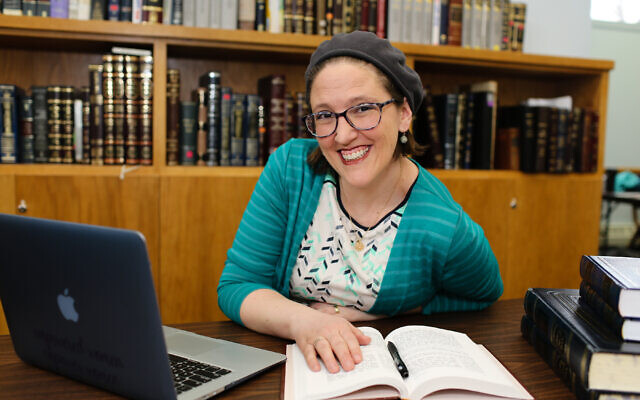Abortion is a Religious Right
Female Atlanta Orthodox rabbi offers Jewish view on reproductive freedom.
Just one year ago, Georgia lawmakers and activists were battling over a “heartbeat bill” that would have dramatically limited access to abortion after a heartbeat is first found, effectively making most abortions illegal in the state, given that many people, especially those in distress, do not know they are pregnant prior to that moment.
When this discriminatory bill was ruled unconstitutional by a federal court, Gov. Brian Kemp said in a statement, “We will appeal the Court’s decision. Georgia values life, and we will keep fighting for the rights of the unborn.” But what Governor Kemp seems to have forgotten about is the value of the pregnant person; luckily the reproductive justice movement has not, nor has Judaism.
Reproductive justice brings a racial and economic justice framework to the work for reproductive freedom, recognizing and addressing disparities in social, economic and political power and how this impacts access to reproductive health care. The work toward reproductive justice was started and continues to be led by women of color, a population systematically marginalized when it comes to accessible health care. And since building a just society for everyone is a Jewish concern, I am honored to stand up in this movement. We must not remain quiet while barriers to health care place any individual’s health, well-being, autonomy or economic security at risk – something which pregnancy so often does.
Before becoming a rabbi, I worked as a social worker and prenatal health educator. I spoke with patients every day who were racially and economically oppressed and had no idea how they were going to make it through. I encountered patients who underwent dangerous procedures to end a pregnancy rather than be saddled with the child of a rape they didn’t know they were carrying until it was too late for a legal abortion.
The stories were heart wrenching and because of the politicization of this personal medical decision, they were trapped, frequently financially, sometimes in abusive relationships, and at times in a pregnancy with a baby with a rare genetic condition who would not live more than five minutes outside the womb. Being present with these women inspired me to learn about Judaism’s approach and commit myself to speaking out once I had the platform to do so.
People who become pregnant engage in a deeply risky endeavor in order to bring human life into the world; this sacrifice demands that their lives and well-being be prioritized when it comes to matters related to pregnancy. In Judaism, our foremother Rachel was the first Jewish woman to die in childbirth, and she was far from the last. In the state of Georgia, with our high maternal mortality rates, strict regulations about abortion access, and very limited access to clinics where one may have a safe abortion, people are dying every day from completely preventable deaths.
In recognition of this danger, Judaism’s commandment to procreate falls squarely and exclusively on men, and not women. Women cannot be commanded to endanger their lives. And yet, throughout the generations, Jewish women have put their lives and well-being on the line to perpetuate our people — not by the might of law but by their own faith, love and optimism.
When a developing life poses a direct threat to the mother’s mental or physical well-being, this optimistic dynamic is overridden. In these circumstances, Jewish law permits and sometimes even mandates abortion.
This weekend I participated in the National Council of Jewish Women’s Repro Shabbat initiative, advocating for the protection of all people of faith to practice their religions freely. Any law that limits a person’s ability to access abortion or reproductive health services limits their ability to practice their faith, and thus violates the First Amendment’s protections of separation of church and state. As a Jewish leader, I have a platform to show that religious communities can be loving and welcoming to anyone who has, or may ever, terminate a pregnancy.
Just as Judaism sometimes obligates abortion, I believe it obligates me as a leader to speak out.
For too long, the Christian religious right has dominated the conversation on abortion. I am speaking out as a person of faith to help change this faulty narrative. I firmly believe that medical advice and Jewish law should determine when a Jewish person gets an abortion, and that the state should afford them the legal freedom to make these decisions. This same freedom should extend to all, independent of their religious identity. Don’t be dissuaded. People of faith support access to this necessary health care.
Rabba Melissa Scholten-Gutierrez is a Jewish educator, community builder, and Orthodox rabbi in Atlanta. She is also a participant in National Council of Jewish Women’s Rabbis for Repro initiative.




comments